Search Images
Browse Content (p. 1596)
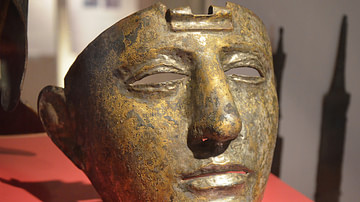
Image
Cavalry Face-Mask Helmet
Cavalry Face-Mask Helmet (Type Nijmegen-Kops Plateau), brass sheet on iron core, dating to the 1st or 2nd century CE. (Rijksmuseum van Oudheden, Leiden, Netherlands)
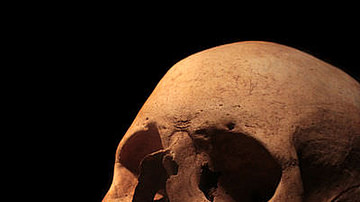
Image
Roman Skull with Obol in Mouth
Upon death, ancient Greek culture called for placing a coin, or obol, in the mouth of the deceased to pay Charon for rowing him/her across the River Styx to the afterlife.
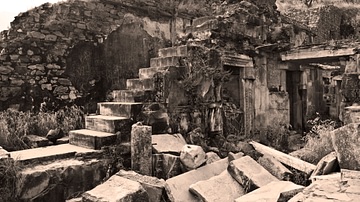
Image
Bhangarh Fort Ruins, Rajasthan
The ruins of Bhangarh Fort in Rajasthan, thought to be inhabited by ghosts.

Image
Lamia
Lamia, oil on canvas by John William Waterhouse, 1909, based on the Keats poem Lamia from 1820. Lamia was an ancient Greek precursor to vampires.
Private collection.
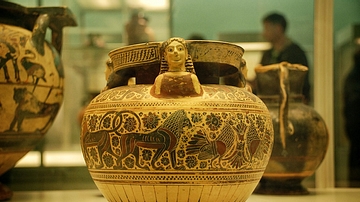
Image
Pyxis (Cosmetic Box)
A middle Corinthian Pyxis (cosmetic box) that shows friezes of lions, sirens, sphinxes and birds. At the rim there are female heads protruding. Circa 600-575 BCE, attributed to the Honolulu Painter. British Museum, London, GR 1873.10-12.1...
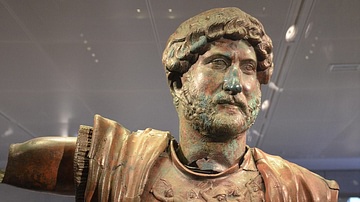
Image
Bronze statue of Hadrian
Bronze statue of Hadrian, found at the Camp of the Sixth Roman Legion in Tel Shalem (Israel). It was found by chance by an American tourist in 1975 while searching for ancient coins with a metal detector. Tel Shalem was once occupied by a...
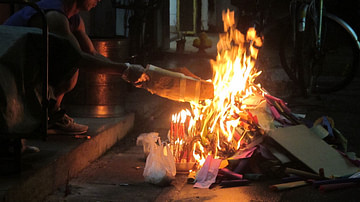
Image
Ghost Festival, China
The Hungry Ghost festival continues to be celebrated in China on the fifteenth night of the seventh month, when it is thought that the dead can cross over into the land of the living because the veil that separates the two worlds is thinnest...
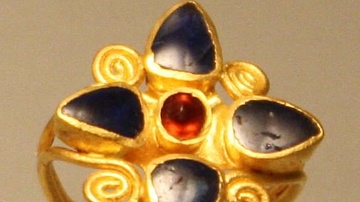
Image
Roman Gold & Saphire Ring
Roman gold and saphire ring, second half of the 2nd century CE. The ring has a garnet centre stone. From an unidentified marble sarcophagus in Rome. (Palazzo Massimo, Rome)

Image
Pakal the Great & Xibalba
A reproduction of the sarcophagus lid of the Maya ruler of Palenque, King Pakal the Great, also known as K'inich Janaab' Pacal (23 March 603 CE - 31 March 683 CE). In this detail the king is falling into the terrible jaws of the Maya underworld...
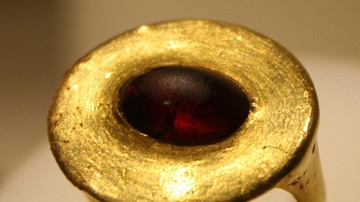
Image
Gold & Garnet Ring, Agrigento
A gold and garnet ring from Agrigento, Sicily, 3rd century BCE. (Archaeological Museum of Agrigento).